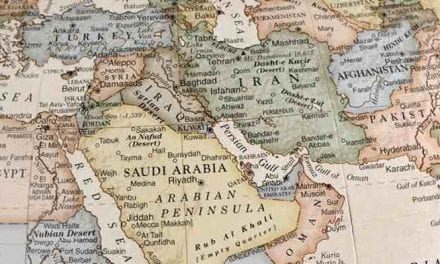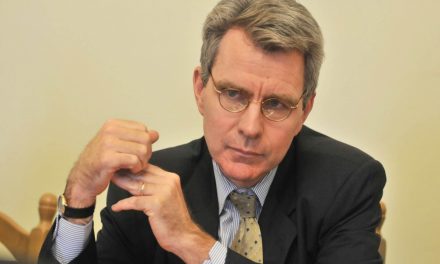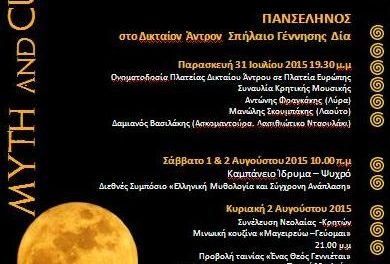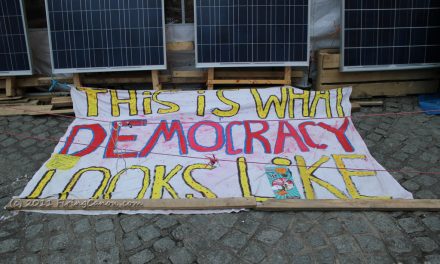By Charles Bybelezer | The Media Line
One year after thwarting a coup attempt, an emboldened Erdogan struggles to balance civic freedoms with security requirements
One year has passed since tanks and soldiers, under the cover of fighter jets, attempted a coup d’état that pushed Turkey, a NATO member and crucial conduit between East and West, to the brink of mass unrest.
Nearly 250 people—not including “the plotters,” as they have become known—were killed in violent clashes before the rebellion was suppressed by the combined forces loyal to President Recep Tayyip Erdogan, along with tens of thousands of his supporters who poured into the streets.
Erdogan blames the July 15 insurrection on his ally-turned-enemy, cleric Fethullah Gulen, who lives in exile in the United States, and subsequently embarked on a crackdown of historic proportions, ordering the arrest of some 50,000 people, the sacking of more than 100,000 government workers, and the closing of scores of news outlets. On the eve of the attempted coup’s one year anniversary—as Erdogan was preparing to address the nation, no less—more than 7,500 additional police, soldiers and other state employees were dismissed in accordance with a state of emergency that has remained in place for twelve months.
In parallel, Erdogan has reinforced his own standing, winning an April referendum on a package of reforms, which includes replacing Turkey’s parliamentary democracy with a powerful executive presidency. It was, according to Erdogan’s critics, the final coup de grace of his own coup, enabling him to vastly increase his authority, which, in turn, has empowered the president to target his political opponents.
In this respect, Dr. Nimrod Goren, an expert on modern Turkey at The Hebrew University, explained to The Media Line that, “Erdogan and his allies continue to target various opposition groups in different ways.” The pro-Kurdish People’s Democratic Party (HDP), for example, which entered the Turkish parliament for first time in the last election cycle, is viewed as a major threat; given Ankara’s longstanding, and ongoing, fight against the Kurdistan Workers’ Party, or PKK, which Turkey has designated as a terrorist group.
Because of this conflict, Dr. Goren explains, the Turkish government keeps close tabs on the country’s restive Kurdish population and has even “placed high-ranking HDP officials behind bars, accused of collaborating with the enemy.”
Erdogan has also taken aim at the Republican People’s Party, or CHP, the main opposition group formed by Mustafa Kemal Ataturk, the “founding father” of Turkish secularism. In response, more than one million people rallied in Istanbul earlier this month in support of CHP leader Kemal Kilicdaroglu, who had concluded of a 400km, three-week “March For Justice” from the capital Ankara to Turkey’s first city. In a speech, Kilicdaroglu called on Erdogan to implement democratic changes or face a “revolt.”
The crackdown has also extended to the military and judiciary, with countless officials fired and replaced with Erdogan loyalists. Nor has Turkish civil society been spared; opponents accuse the government of blurring the lines between religion and state, while curtailing basic liberties, such as the right to assemble and free speech.
Lee, a female freelance writer based in Istanbul, who spoke to The Media Line on condition of anonymity, confirmed that there exists a “culture of fear,” especially among journalists. In fact, Turkey has more journalists imprisoned than any other country in the world, with the Sweden-based Stockholm Center for Freedom pinning the number at 240, as of May 2017.
In the result, Lee says, there is sense that one needs to “self-censor,” especially when reporting on terrorist attacks—”a very dangerous topic”— the Kurdish issue—”which can land you in jail”—and, of course, anything critical of Erdogan. To control the narrative, Lee stresses, the government uses only pro-Erdogan or state-run news agencies to disseminate information.
“Naturally,” she concludes, “journalists are scared. It is very difficult to do our jobs. We just do our best.”
Externally, Ankara’s “zero problems with neighbors” foreign policy appears a thing of the past. An air campaign against the PKK in Iraq spilled over into southern Turkey, particularly in and around the heavily Kurdish-populated city of Diyarbakir; where clashes between militants and government forces, as well as bombings, became commonplace. And because of Turkey’s military engagement in Syria, major Turkish cities have been targeted by suicide bombers, including members of the Islamic State.
Dr. Gallia Lindenstrauss, an expert on Turkish foreign policy at Israel’s Institute for National Security Studies, believes Erdogan made two, overriding miscalculations. Most recent, Dr. Lindenstrauss tells The Media Line, “was the belief that Syrian President Bashar al-Assad would be easily removed;” and before, during the Arab Spring, “Turkey gambled on the [Muslim Brotherhood] and the Morsi government in Egypt, but now you have [President] Sisi.”
While Erdogan has since attempted to repair ties with Cairo—as part of what Dr. Lindenstrauss describes as a foreign policy reset—the countries have yet to reinstitute full diplomatic ties. Moreover, Ankara remains embroiled in the war in Syria, with a view to preventing Kurdish rebels from carving out a territory along the shared border which could be used to target Turkey in the future.
This adventurism in the Middle East, coupled with Erdogan’s crackdown at home, has also caused tensions with the U.S. and EU, with which Turkey has held accession talks for over a decade.
With respect to Washington, Dr. Lindenstrauss highlights two significant points of contention; namely, the U.S.’ support for the Kurdish YPG—which has connections to the PKK—in Syria, and that Fethullah Gulen continues to reside on American soil, despite a formal extradition request by the Turkish government. As regards the EU, the friction centers around Erdogan’s increasing authoritarianism and disrespect for human rights; the ongoing migrant crisis; and the fact that both Gulen and the PKK maintain large organizational bases in the EU.
Overall, then, Turkey is facing many challenges, both at internally and abroad, even as Erdogan consolidates his grip on power (which could extend to 2029 if he is successful in his bid to change the term limits of the presidency). So while July 15, the date of last year’s coup attempt, has been declared an annual holiday—Democracy and National Unity Day—for many Turks, the reality of daily life remains a far cry from celebratory or free.


















